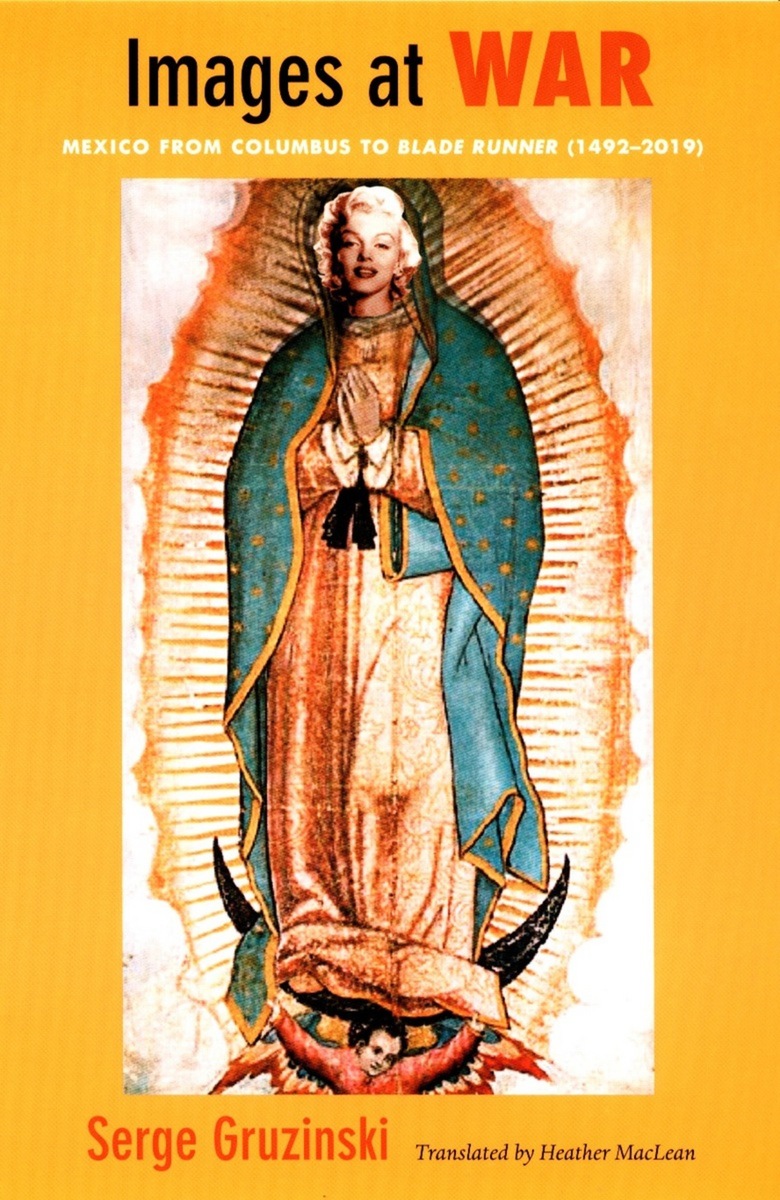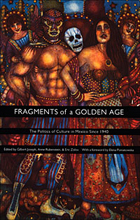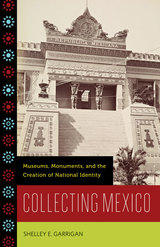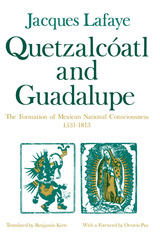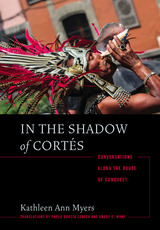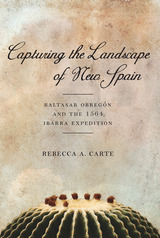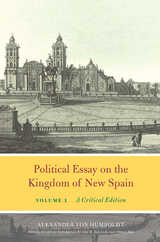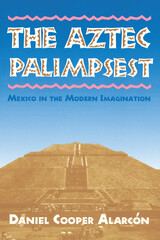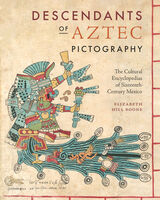Images at War: Mexico From Columbus to Blade Runner (1492-2019)
Duke University Press, 2001
eISBN: 978-0-8223-8311-6 | Paper: 978-0-8223-2643-4 | Cloth: 978-0-8223-2653-3
Library of Congress Classification F1210.G7813 2001
Dewey Decimal Classification 972
eISBN: 978-0-8223-8311-6 | Paper: 978-0-8223-2643-4 | Cloth: 978-0-8223-2653-3
Library of Congress Classification F1210.G7813 2001
Dewey Decimal Classification 972
ABOUT THIS BOOK | AUTHOR BIOGRAPHY | REVIEWS | TOC | REQUEST ACCESSIBLE FILE
ABOUT THIS BOOK
“If colonial America was the melting pot of modernity, it was because it was also a fabulous laboratory of images. . . . Just as much as speech and writing, the image can be a vehicle for all sorts of power and resistance.” So writes Serge Gruzinski in the introduction to Images at War, his striking reinterpretation of the Spanish colonization of Mexico. Concentrating on the political meaning of the baroque image and its function within a multicultural society, Gruzinski compares its ubiquity in Mexico to our modern fascination with images and their meaning.
Although the baroque image played a decisive role in many arenas, especially that of conquest and New World colonization, its powerful resonance in the sphere of religion is a focal point of Gruzinski’s study. In his analysis of how images conveyed meaning across linguistic barriers, he uncovers recurring themes of false images, less-than-perfect replicas, the uprooting of peoples and cultural memories, and the violence of iconoclastic destruction. He shows how various ethnic groups—Indians, blacks, Europeans—left their distinct marks on images of colonialism and religion, coopting them into expressions of identity or instruments of rebellion. As Gruzinski’s story unfolds, he tells of Aztec idols, the cult of the Virgin of Guadalupe, conquistadors, Franciscans, and neoclassical attempts to repress the baroque. In the final chapter he discusses the political and religious implications of contemporary imagery—such as that in Mexican soap operas—and speculates about the future of images in Latin America.
Originally written in French, this work makes available to an English audience a seminal study of Mexico and the role of the image in the New World.
Although the baroque image played a decisive role in many arenas, especially that of conquest and New World colonization, its powerful resonance in the sphere of religion is a focal point of Gruzinski’s study. In his analysis of how images conveyed meaning across linguistic barriers, he uncovers recurring themes of false images, less-than-perfect replicas, the uprooting of peoples and cultural memories, and the violence of iconoclastic destruction. He shows how various ethnic groups—Indians, blacks, Europeans—left their distinct marks on images of colonialism and religion, coopting them into expressions of identity or instruments of rebellion. As Gruzinski’s story unfolds, he tells of Aztec idols, the cult of the Virgin of Guadalupe, conquistadors, Franciscans, and neoclassical attempts to repress the baroque. In the final chapter he discusses the political and religious implications of contemporary imagery—such as that in Mexican soap operas—and speculates about the future of images in Latin America.
Originally written in French, this work makes available to an English audience a seminal study of Mexico and the role of the image in the New World.
See other books on: Acculturation | Columbus | Mignolo, Walter D. | Saldívar-Hull, Sonia | Silverblatt, Irene
See other titles from Duke University Press
